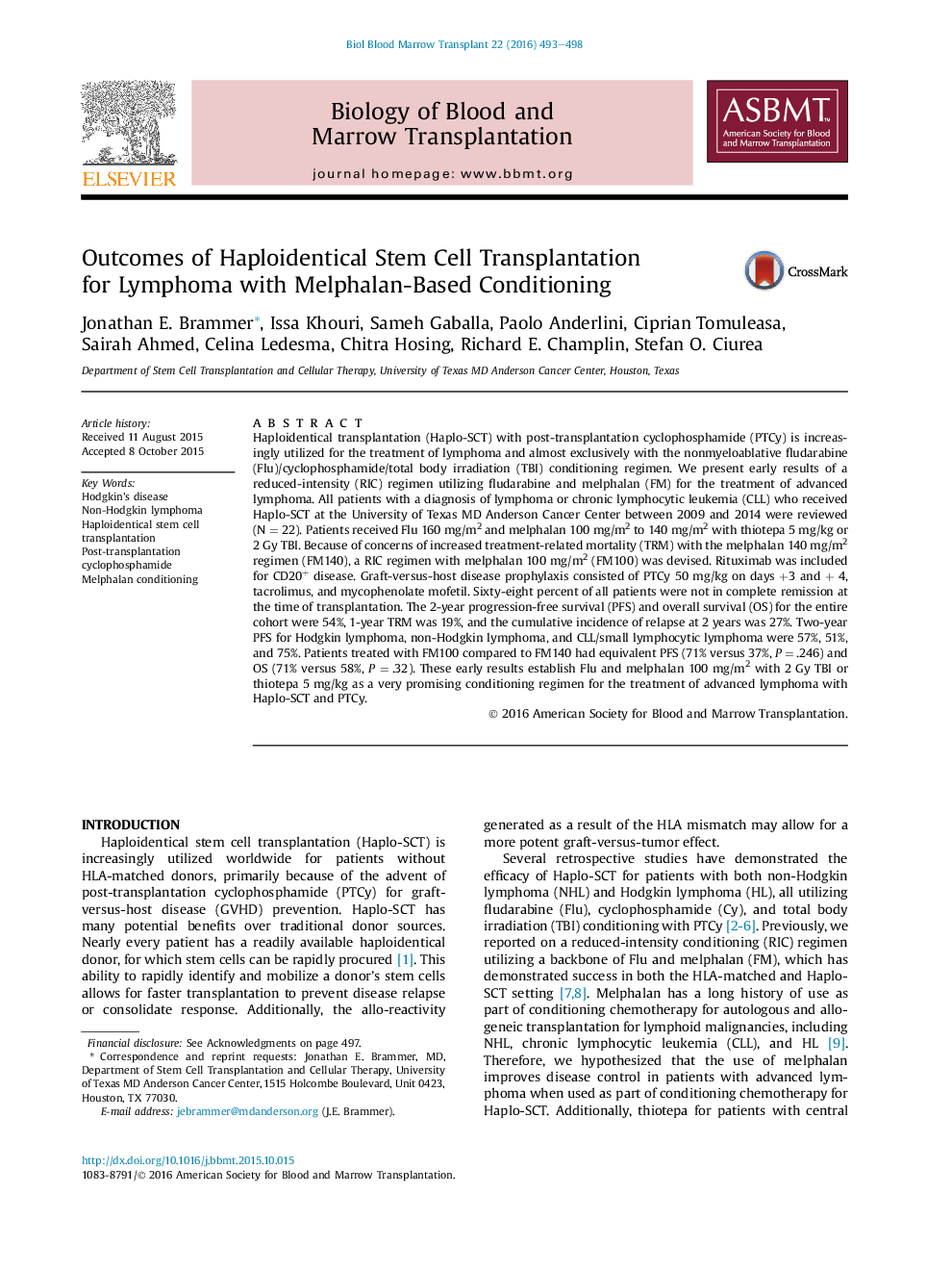| Article ID | Journal | Published Year | Pages | File Type |
|---|---|---|---|---|
| 2101802 | Biology of Blood and Marrow Transplantation | 2016 | 6 Pages |
•Fludarabine/melphalan is effective conditioning for haploidentical transplantation•Haploidentical stem cell transplantation with fludarabine/melphalan resulted in low rates of nonrelapse mortality and graft-versus-host disease•Haploidentical stem cell transplantation with fludarabine/melphalan resulted in excellent disease control in advanced lymphoma•Reduced-intensity fludarabine/melphalan 100 was equivalent to myeloablative fludarabine/melphalan 140
Haploidentical transplantation (Haplo-SCT) with post-transplantation cyclophosphamide (PTCy) is increasingly utilized for the treatment of lymphoma and almost exclusively with the nonmyeloablative fludarabine (Flu)/cyclophosphamide/total body irradiation (TBI) conditioning regimen. We present early results of a reduced-intensity (RIC) regimen utilizing fludarabine and melphalan (FM) for the treatment of advanced lymphoma. All patients with a diagnosis of lymphoma or chronic lymphocytic leukemia (CLL) who received Haplo-SCT at the University of Texas MD Anderson Cancer Center between 2009 and 2014 were reviewed (N = 22). Patients received Flu 160 mg/m2 and melphalan 100 mg/m2 to 140 mg/m2 with thiotepa 5 mg/kg or 2 Gy TBI. Because of concerns of increased treatment-related mortality (TRM) with the melphalan 140 mg/m2 regimen (FM140), a RIC regimen with melphalan 100 mg/m2 (FM100) was devised. Rituximab was included for CD20+ disease. Graft-versus-host disease prophylaxis consisted of PTCy 50 mg/kg on days +3 and + 4, tacrolimus, and mycophenolate mofetil. Sixty-eight percent of all patients were not in complete remission at the time of transplantation. The 2-year progression-free survival (PFS) and overall survival (OS) for the entire cohort were 54%, 1-year TRM was 19%, and the cumulative incidence of relapse at 2 years was 27%. Two-year PFS for Hodgkin lymphoma, non-Hodgkin lymphoma, and CLL/small lymphocytic lymphoma were 57%, 51%, and 75%. Patients treated with FM100 compared to FM140 had equivalent PFS (71% versus 37%, P = .246) and OS (71% versus 58%, P = .32). These early results establish Flu and melphalan 100 mg/m2 with 2 Gy TBI or thiotepa 5 mg/kg as a very promising conditioning regimen for the treatment of advanced lymphoma with Haplo-SCT and PTCy.
